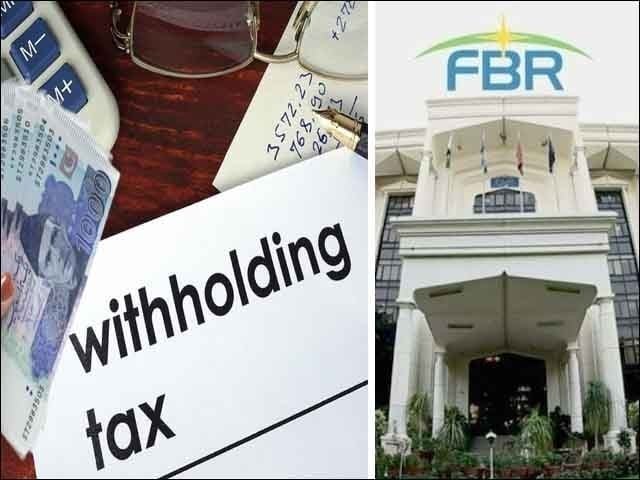The government has decided to eliminate non-filers from the tax laws and impose restrictions on 15 types of their activities. To increase revenue from existing filers and non-compliant citizens, the government has garnered support from major industrialists.
The Federal Board of Revenue (FBR) revealed, based on income tax return data, that 94% of taxpayers from Pakistan’s middle-income group comply with tax regulations, while compliance among the wealthiest 1% of Pakistanis is only 29%. The government believes there is a need to tighten the noose around tax return filers further.
Representatives from major industrialists, the corporate sector, and fast-moving consumer goods companies have expressed their support for the government’s new tax plan. This plan includes controlling filers comprehensively and penalizing non-filers. During a meeting with business leaders, FBR Chairman Rashid Langrial informed participants that the government is moving towards eliminating the category of non-filers, which will restrict the use of checks for withdrawing cash beyond a specific limit.
The government plans to redefine the definitions of non-filers and subsequently filers in the tax laws, and also to abolish Schedule 10 of the Income Tax Ordinance, which doubles the withholding tax rates for several transactions involving non-filers.
State Minister for Finance Ali Pervaiz Malik stated that the FBR has not utilized the available data mining effectively, which is why they are now moving towards this new plan.
Chairman Langrial mentioned that gradually, restrictions would be imposed on 15 types of transactions for non-filers, including travel for non-religious purposes. The proposed cash withdrawal limit through checks is set at 30 million rupees annually. He also stated that to increase pressure on cash withdrawals via checks, information would be shared with banks through the State Bank.
The government plans to begin acquiring properties whose reported costs are below market rates in tax returns. Langrial noted that this provision was introduced during former Prime Minister Shahid Khaqan Abbasi’s tenure but was not implemented. The category of non-filers was introduced under the previous government of the Pakistan Muslim League-Nawaz to bring people into the tax net; however, people preferred to pay more taxes rather than become filers.
Langrial added that last year, withholding tax payments amounted to 1.33 trillion rupees, with claims of 423 billion rupees not made by non-filers. He emphasized that conceptual filers pose as significant a problem as non-filers, and without resolving both issues, Pakistan’s tax challenges cannot be addressed. Of the 670,000 individuals in the wealthiest 1%, only 230,000 have filed their returns and disclosed their actual income.
This wealthiest 1% is responsible for 1.2 trillion rupees of the 1.32 trillion rupee tax gap in the individual category. In contrast, 94% of poorer individuals are making their payments. Ali Pervaiz Malik indicated that the aim of the new transformation plan is to identify non-taxed and low-tax sectors and individuals to reduce pressure on formal sectors.
FBR policy member Hamid Atiq Sarwar informed industrialists and their representatives that new restrictions would be imposed on cash withdrawals exceeding 30 million rupees annually. Filers claiming more than 10 million rupees in income will only be allowed to purchase cars but must disclose their income sources before buying land. Those earning less than 10 million rupees will need to provide clarification before buying cars, land, or investing in securities and mutual funds.
In his briefing, Hamid Atiq noted that after adjusting for inflation and economic growth impacts, FBR’s collections have stabilized at 3.1 trillion rupees since 2004. Of the 5.9 trillion rupee tax gap, 2 trillion rupees pertained to income tax. Approximately 60% of Pakistan’s population, or 67 million individuals, earn below the taxable income threshold of 600,000 rupees annually.
He stated that non-filers would be prohibited from purchasing property, cars, investing in the stock market or mutual funds, and opening current accounts. The business community, except for the Pakistan Retail Chains Association representative Ziad Bashir, has supported these measures. Bashir Diwan from the Pakistan Business Council also endorsed the government’s actions.
Representatives Khurram Mukhtar from the Pakistan Textile Exporters Association and Shahid Sattar from the All Pakistan Textile Mills Association also supported the government’s stance. Asad Shah, representing the formal tobacco sector, acknowledged the positive nature of these measures but noted the challenges in implementation. Arif Habib supported the proposal but urged the FBR to exercise caution in discouraging cash transactions.
Ziad Bashir questioned what message the FBR is sending by taking action against filers. He suggested that the FBR should appoint 3,000 new private auditors to gather information about non-filers. Sheikh Waqar, representing Nestlé Pakistan, emphasized the need to enforce existing regulations. Mr. Rafiq, representing Jahangir Khan Tareen’s sugar industry empire, also backed the proposal but stressed the need to lower the withholding tax rates for wholesalers and distributors, stating that unregistered businesses should not be an acceptable concept in Pakistan.
Abbas Aksar, representing the steel industry, supported the government’s initiatives and insisted that these measures should be made sustainable. Arif Saeed from the services sector pointed out that the government would require strong political commitment to implement these standards, as many individuals are likely to withdraw when the government initiates these measures.



